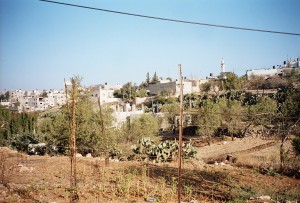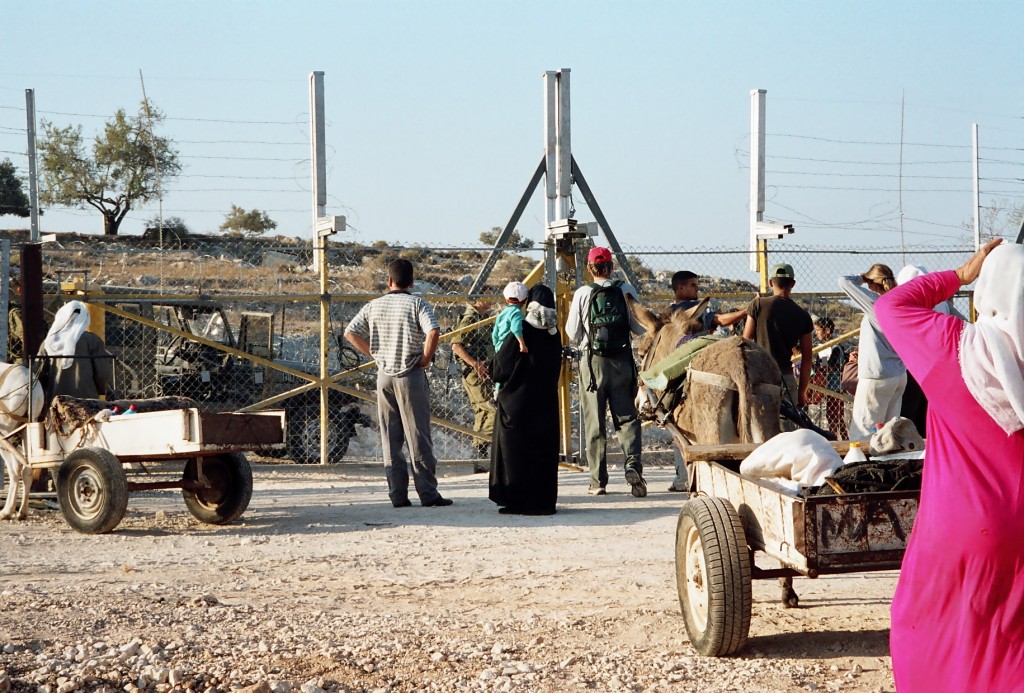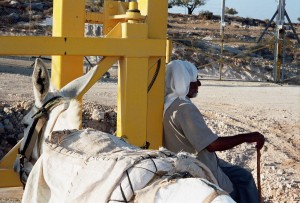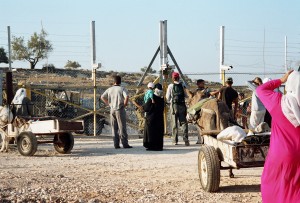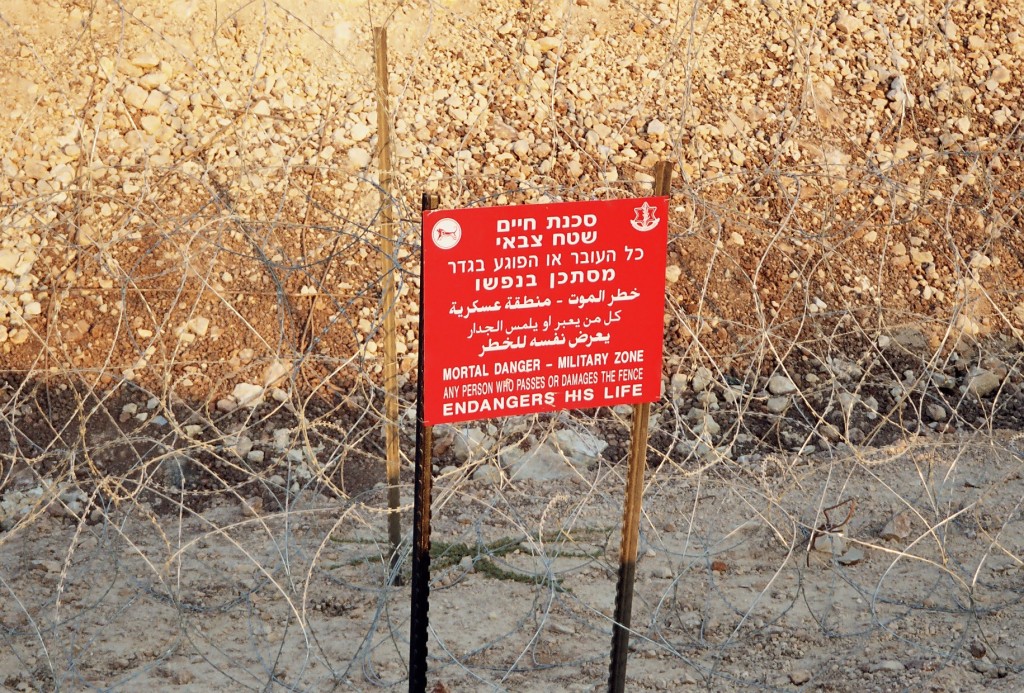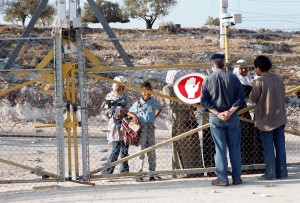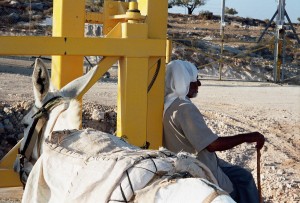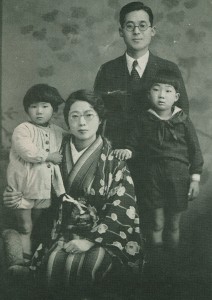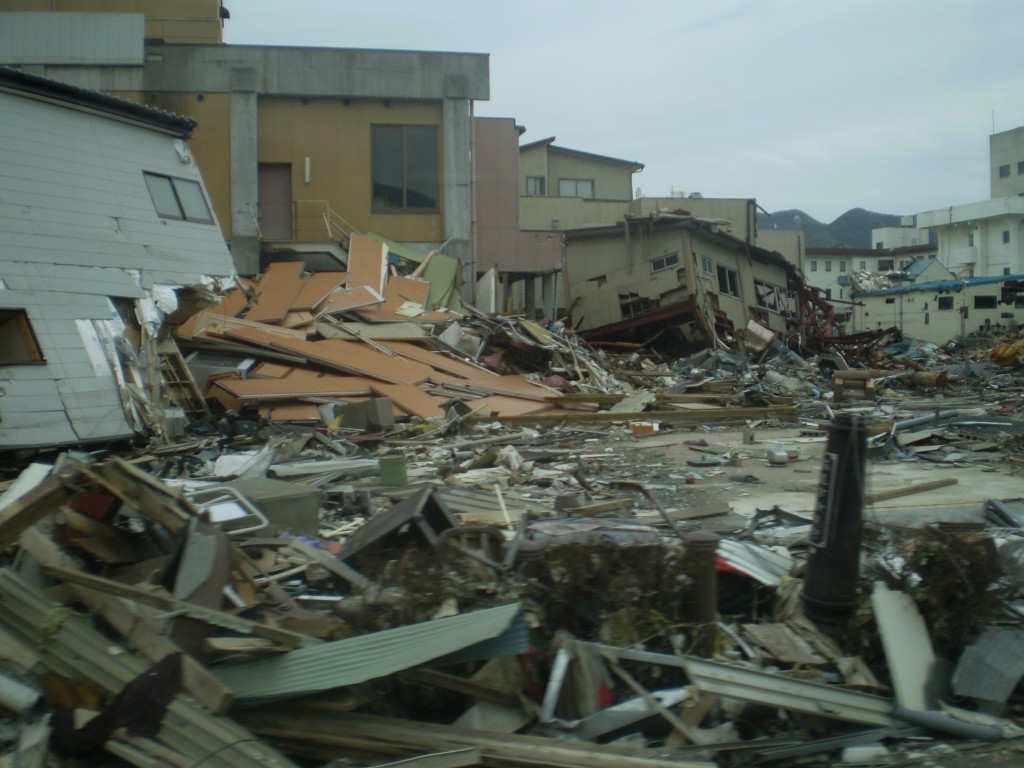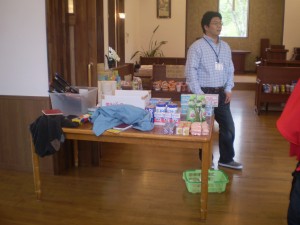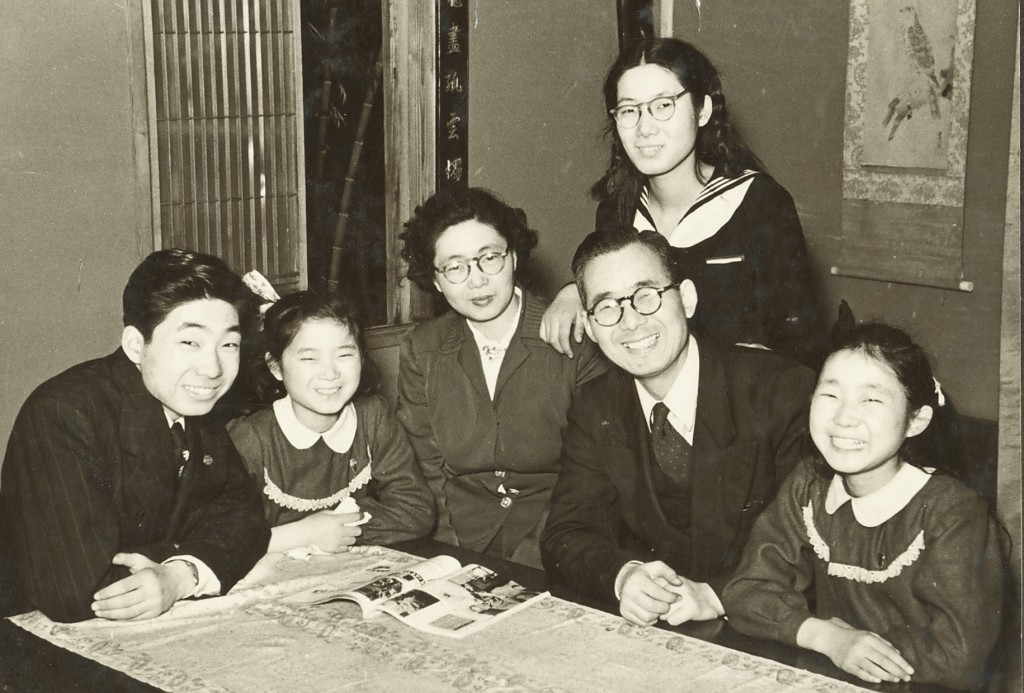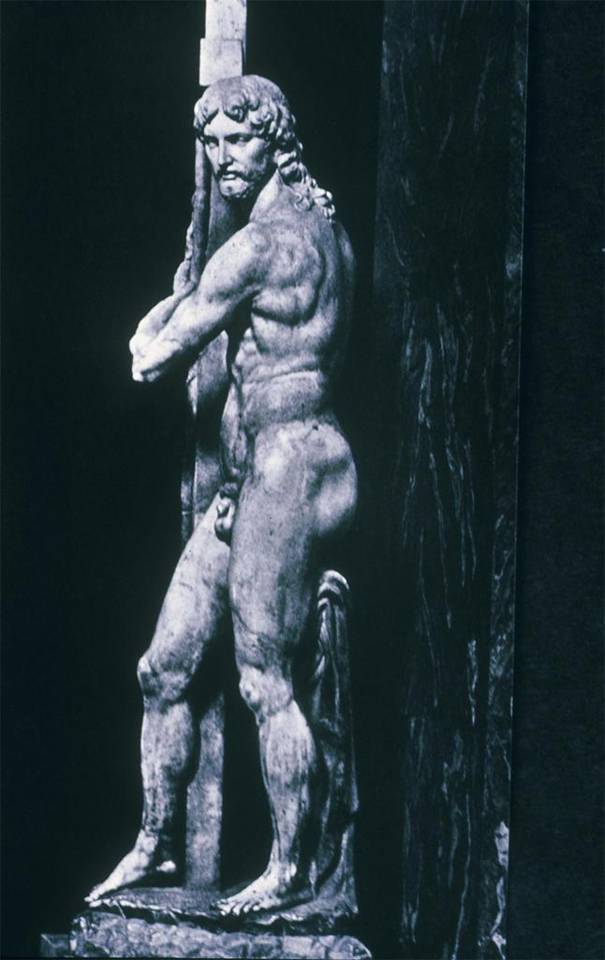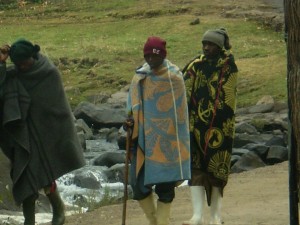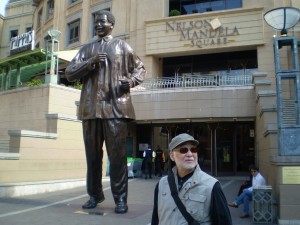 LETTERS FROM SOUTH AFRICA
LETTERS FROM SOUTH AFRICA
A JOURNAL OF AN ELECTION OBSERVER, April, 1994
Tad Mitsui was appointed to be a member of the Ecumenical Monitoring Program for South Africa (EMPSA) in 1994. It was a program organized by the World Council of Churches to help the South African Council of Churches, which was an official member of the Independent Electoral Commission for the first democratic general election in South Africa involving the total population.
The following are the journal he wrote in Johannesburg and Durban.
WHO ARE WE? AND WHAT ARE WE EXPECTED TO DO?
By Tad Mitsui
We are staying at a hotel in Johannesburg for a week, being briefed about the tasks ahead of us in the World Council of Churces sponsored Ecumenical Monitoring Program in South African. I am writing the following to make sure that I know what I am doing.
We are 15 Canadian church persons among 320 chosen from Ecumenical partners from all continents. Canadians came from coast to coast, women and men, Lay and Ordained, young and not so young, activists, journalists, politicians, and a retired RCMP, and are from Anglican, Baptist, Catholic, Presbyterian, and United Churches.
But I have forgotten completely that we belong to different churches until now. When we have a common agenda, denominational affiliations become meaningless. Politically, we are Reform Party on the right to NDP on the left. That distinction also lost meaning in the face of daunting tasks in front of us, united in our solidarity with our sisters and brothers, who are determined to create a democratic nation with a minimum of violence.
We are all committed to accompany our South African brothers and sisters in their efforts to build a democratic country peacefully.
After all, it is their country and their mission. And it is they who are creating a new country, and who are in the forefront, often endangering their own lives. We are with South African Christian sisters and brothers to monitor the process of transition to a democratic state.
We monitor and support their efforts to educate people for democracy in their voters’ education programs, encourage and mediate in the situations of potentially violent situations. This calls for, sometime, standing between two groups of thousands of hostile crowds. Many churches created Peace Committees in their communities, trying to avert potential violent conflicts. We don’t know how many lives those brave church people saved in this program. I feel frustrated that the Press ignore those Good News.
I suppose it is our job, as Evangelists, to bring those Good News (Isn’t that what Gospel is called?) to the attention of people.
We will also observe the election process by being at the polling stations and at the vote counting centres. We will learn the skills to do that by the Independent Electoral Commission. This may not take place in Natal, because of the objections raised by the Inkhata Freedom Party (IFP). (It is wrong to call them simply “Zulus”, as Canadian Press do, because there are many Zulus those do not belong to IFP, I am told.)
We will be divided into groups of four persons, no 2 persons from a same country in a group. I have been assigned to station in Durban, and will monitor the situations in Kwa-Zulu region, a stronghold of IFP. Sounds fun?
Tomorrow, Sunday, we will attend the Worship Services in Soweto, and attend Rally to commemorate the first anniversary of Chris Hani’s assassination.
Thank you for your prayers.
Johannesburg, April 10, 1994
CROSSING THE BARRIER
I crossed the barrier for the first time in twenty two years. At last, I saw what I had missed all those years on the other side. It was just ordinary airport scenes; carousels, customs, foreign exchange, etc. But I was almost in tears, as a flood of emotion overcame me. My fellow travellers asked me how I felt. I could not answer, in any language!!
In 1972, January 2, I was stopped at the passport control in the old terminal building of Jan Smuts Airport, Johannesburg. It looked as though they were waiting for me. All I had in my mind at the time was a thought of picking up my car and driving home to Lesotho 360 miles away, where Evelyn, who was seven, was waiting for me to prepared supper. Her mother had gone that morning to a conference in Botswana.
A security man came to the passport control officer, and asked me to follow him. He had my passport in his hand already. He took me to a room on the second floor, told me to wait, and went away. Three days of hell began.
No, nobody did anything to me. That was the worst part Nobody showed up, except a frightened blackman in a blue coverall who delivered stale food from greasy-spoons. I had no idea why I was held. I still don’t.
The thought of Evelyn alone in that house in Lesotho, not knowing where her dad was and wondering when she could eat supper and go to bed, drove me crazy. There was nothing to read, listen, nor write with. The door, of course was locked. The only window, which could not open, was facing another brick wall.
Ingredients of hell are the situations where you have absolutely no control nor knowledge of you own future. I would have said anything to anybody just to get out. I was an easy torture victim. Of course, I could not sleep during those 3 days, until the same security man came to give me a piece of paper ordering me get out of the Republic of South Africa in 6 hours.
Since then, of some friends Movement of South Africa, a few were killed under mysterious circumstances or murdered. Tiro, Mohapi, Biko, Turner, Roza, etc. One man, whom I though to be a trusted friend turned out to be a spy for the police, Craig Williamson.
Many South African friends asked me, not knowing anything about those 3 days in 1972, when I would come to visit them. I answered, “When freedom comes to your country.” Now I am here. It is a miracle.
Johannesburg, April 12, 1994
RUMOURS OF WAR
As we drove into Kwa Zulu/ Natal, after a few hours of drive, my travelling companion from Belgium observed, “It looks so normal. I can not believe it!!” He expected armoured vehicles allover the country, perhaps bullets flying, having to duck a few times. He could not believe how many cars there were on the road. No check points nor curfew at midnight. I am sure that there are places where you find them. But perception of danger in Natal was so prevalent that it was blown out of proportion.
In fact, one Canadian withdrew from the program when he discovered that he was assigned to Natal. His wife said to him on the phone, “Natal? You are not going, not on my life!!” Why do we continue to believe that CNN tells absolute truth? He could not believe in the guarantee given by the South African sisters and brothers about our safety. What a pity!!
Of course, there is a serious problem in Kwa Zulu/Natal. People are being killed everyday. Houses were burned. It is not, however, so called “Black on Black” tribal conflict as our media put it. It is a conflict between the followers of two political parties, combined with old feuds of many years. Of course, there are certain places we do not go. There is State of Emergency in force and Natal is under military control. It is serious. Unless this impasse is resolved, credibility of the election will be diminished. I am not minimizing the danger that exists nor the seriousness of the problem.
I believe, however, that we have to look at the situation in perspective. And avoid seeing the South African situation more serious than what actually is. More importantly we must realize that, by exaggerating the problem like sensation loving media do, we are not giving due credits to those courageous South Africans who worked so very hard to reach this point in their history. The country is on the verge of actually moving into a Democratic society. It is like a miracle, for those like me who watched the struggle for freedom for decades.
Just before I left Canada, in a peaceful street of Ottawa, a British engineer was shot to death for no reason by a group of teenagers. A month before, a couple of Japanese students were shot in Los Angeles. And President Clinton had to apologize Japan for this senseless killing. How many foreign tourists were targeted and killed in Miami? On the other hand, how many foreign observers were killed in Kwa Zulu? Zero!! Was any of the candidates in South African election assassinated like Robert Kennedy or Colosio in Mexico was? We had to buy an extra War Coverage in our travel insurance to come here. Why are not all those who go to Miami required War Coverage?
We foreigners complain about inefficient infrastructure in South Africa, like telephone service, banking system, bureaucratic organizations. We forget that South Africa was let behind because of the sanction we imposed. We prohibited them to buy new management systems and technology.
We must be more objective and give due credits to South Africans. Yes, there are so many problems. However, in the face of a huge task before them, what Independent Electoral Commission and Transitional Executive Council have achieved in such a short time is nothing less than unprecedented. I don’t think the bureaucracies in Canada would accept to implement such a huge amount of tasks in the time given to the South Africans. I wouldn’t, and I am an experienced bureaucrat.
Changes in the attitudes towards other racial groups, to me, seems almost surreal compared to the times I remember, coming from more and more racialistic society in Canada. Black preachers in Soweto speaking about forgiveness after so many deaths and suffering, probably will be laughed at in the similar situation in our more and more litigious society. You may call it ‘being realistic’ . If so, what should we call senseless racist things we sometimes do in a democratic and free Canada? Stupidity?
The most important lesson I learned in this type of trip is how much our Christian partners value our solidarity and bend backward to guarantee our safety. In my days in Ecumenical work, I have been a guest of the partner churches in many Civil War situations. I have been to Angola, Ethiopia, Gaza and West Bank, Mozambique, Lebanon, Sudan, and Zimbabwe during civil strife. When I followed the advise of my host partners, I never felt that I was in danger, even at the height of Israeli/Lebanon War of 1982 in Beirut. I was mugged and robbed when I did not, in Dar es Salaam and in New York City.
So I cry with the widow of a man who was hacked to death in her burned down home, admire the courage of those Peacemakers who stood between warring groups, and enjoy the Sun of this beautiful city of Durban. I trust and follow the advise of our coordinator, a Baptist minister whose church recently was burned to the ground. He hold no grudge against whoever did it, and work for the Peace that only can build the new South Africa. I feel safe.
Tad Mitsui
Durban, April 13, 1994
A BORING CANADIAN
A group of 21 people coming from 21 countries are staying in this beautiful former convent “Glenmore”, divided into five groups to monitor Peace process in and around Durban. We are also expected to observe the election process on 26,27, and 28 April.
Our groups are running around allover the place, mainly in Kwa Zulu, attending political meetings, looking at mainly the aftermath of violent incidents, and learning to observe the polling stations. All exciting stuff. There will be “Jesus Peace Rally” on Sunday in the city stadium, to show the unity of all Christians for peace.
Tens of thousands are expected to attend.
But here I am, stuck in the office looking after communication by E-Mail and FAX, and by telephone and walkie-talkies, summarizing reports from the groups, and getting messages. My wife and friends should be pleased to know that I am safe, because I am bored to death in the office.
How have I got here? Don’t laugh. Because of my (alleged) ability in English. And also, (don’t laugh, David Shearman) because I am the only one in the group who has handled E-Mail. Yes, it did take two days to fix a FAX machine. Yes, after 3 days of struggle, I did get to Johannesburg by E-Mail programme called “Co/Session”. I finally figured it out. I am beginning to realize that this sort of doing boring things may be the lot Canadians are destined to.
Honest but boring broker.
My good friend, Jim Hodgson has been stuck in Johannesburg, taking charge of Communication in Khotso House for the Ecumenical Monitoring Program National Office. Sure, he is an excellent journalist, but stuck in Johannesburg? I also know that a few other Canadians are assigned to the similar kind of job, like mine, in other parts of the country.
Today, a young German came back completely frustrated, because his group missed all the important but tragic events. He wanted to bypass our local co-ordinators to plan the group’s movement, so that he could be where action is when it happens. Fortunatelyanother German, a slightly older and wiser man, persuaded him to believe that this is South Africans’ show, not the Europeans.
In the meantime, killings go on in Natal. 7 Voters’ Education worker who were distributing pamphlets were shot and hacked to death. It is tragic. But it is coming to be clear that who are for democracy and freedom, and who are not.
There was a live TV debate between Mandela and de Klerk last night. White papers claimed de Klerk’s victory, and the black paper claimed otherwise. So what’s new? I am glad that even in South Africa, a banality show called ‘election’ has come into town. Does that mean also democracy is coming? I hope so.
Tad Mitsui
Durban, April 15, 1994
JESUS PEACE RALLY
There were approximately 40,000 people Evangelism attending, about 113 white. It was organized by African Enterprise, a Billy Graham type of an Organization for Evangelism, based in Pietermaritzburg.
All the mainline church leaders of Durban endorsed it and were present. And we were encouraged to attend and show our solidarity. The leaders of all political parties also endorsed the event.
I saw hardly any police force around the Stadium, which was quite remarkable in the Province which is in the State of Emergency and where large meetings and demonstrations were not allowed without permit. It is remarkable in a country where the government used to even ban the church services sometimes and bombed the headquarters of the Council of Churches. It seems that the authority at last realized that the church could be a force to help bring about peace.
Another remarkable thing about this rally was that it was run very much in the style of Evangelical meeting, even of Fundamentalist gathering. A Belgian Roman Catholic Priest sitting beside me looked stunned watching a spectacle he had never seen, except on the American Tele-Evangelists’ program. It was very much like that. Shouting preachers, spontaneous Amen’s and Halleluyah’s, “Thank you sweet Jesus”‘s. Raising hands, dancing with choir, even speaking in tongues.
What was different from what we know as Evangelical meeting was that the content of message was Justice and Peace like that of the United Church. We were asking God for forgiveness of the sins of Apartheid in which many participated by commission or omission, by trampling on the sisters and brothers in Christ. We asked God’s help to be an instrument of His peace so that killing would stop. Those are the kind of prayers that are not normally heard in the North American Evangelical meetings. As though to say that the prayer included action, many Peace Monitors from the Peace Committees were very much present.
Today’s rally reminded me that Evangelicals do not have to be conservative and right wing politically, like they normally are in North America. We forget the fact that Martin Luther King was a Southern Baptist, spoke very much in a style of an Evangelical preacher. None of our local coordinators is from so-called mainline churches. Zion Pentecostal Church, etc. Our own coordinator would be the closest to a mainline church by being a conservative Baptist. I remember a Zimbabwean friend of mine told me one time about many of guerrilla fighters went out to fight after all night prayer meetings during the liberation war of that country.
I also remember that during my days of the University Christian Movement of South Africa, some of the most fiery revolutionaries were from African Independent Churches, very much in the tradition of Pentecostal churches or of African Spirituality. In fact, one of the most prominent Anti-Apartheid Christians, Beyers Naude was one of the strongest supporters of the African Independent Churches, and helped to start their Theological School.
Perhaps, we should change our mind about Evangelicals. They can remain theologically conservative, but can also be strong on social messages of the Gospel.
Incidentally, I ran into an old acquaintance of mine at the rally, a former PC MP, Rev. Walter McLean. He was also here as a part of the Commonwealth Observer Team. Walter was the Chair of the Commission on World Concerns at the Canadian Council of Churches, when I was the Executive Secretary of the Commission. It was good to see him in a good shape. He said he recovered, or did he even run? What was interesting was that he is now working out of Bob Rae’s office keeping his eye on African and UN matters for the Province of Ontario. Bob Rae? What’s going on? Walter was a Red Tory, but working with Bob Rae, NDP?
But why not. If the Evangelicals can pray together with me to heal the nation, why not Bob Rae, NDP with Walter McLean, PC.
Tad Mitsui
King’s Park Football Field, Durban, April 17, 1994
WE SHOULD KNOW BETTER
-that we don’t know, really-
If, God forbid, our planet should be destroyed because of our stupidity, it will probably be the collective fault of Europeans, Japanese, and North Americans. Certainly not the fault of Africans. Just as much as we are capable of producing weapons which can destroy the earth several time over, our efficiency and good organizations can do the same through other ways, through destruction of ecology, very efficiently.
Then, what in heaven’s name we think we know better to run South African election? I confess that I do get irritated by different ways our African colleagues run things. But I get very angry when some of us Europeans and North Americans think that we know better than Africans because of our efficiency and organization. We must remember time and again that it was African blood spilt in the struggle for liberation that brought about finally this freedom, not our hesitant solidarity actions from outside, though it helped.
I always remind myself of the fact that the worst thing happened to foreigners like me was to be kicked out. I was safe. But my friends paid for what we professed together with their lives. My words were cheap. Their words were their lives. Some of them, though much small in number, were also whites. Those whites were traitors to their class. Beyers Naude, Ruth First, Rick Turner, etc. I admire them very much.
Last night, on the day the Inkhata Freedom Party decided to participate in the election, we decided to invite my old friend, Jeff Guy to tell us about the history of Zulu. He and I lived on the same Campus for several years, he teaching Zulu history, and I theology. I did not know he returned from exile and was teaching here at the University of Natal. We chuckled watching Desmond Tutu, who was also a lecturer in the same Campus, commenting on Buthelezi’s decision on the TV news, remembering good old days.
We were so happy to know about Rolland Hunter’s release from the prison. Rolland was a few years older that Evelyn. She was six when we started to live on the University Campus. His dad was Professor in Education. He came to stay with us in Geneva, when he was bumming around Europe trying to avoid military service. He came back to South Africa, probably money running out, and was drafted into the army. It did not take very long for him to be caught giving military secret to ANC, tried for high treason, and sentenced for many years.
They risked their lives and some whites also.
So what right do we have, criticizing the way this election is run when they are doing their best under incredibly difficult circumstances. And some of us have nerve to criticize the way this monitoring exercise is run. Especially we don’t seem to understand the way they run things by consensus. We think it is waste of time
and very disorganized and inefficient. Just as I predicted, getting along with my colleagues from the Northern countries is more difficult problem for me, than the alleged danger due to conflict or the challenge of gaining trust of people.
It is interesting, isn’t it, the person, who remained after Kissinger and Callaghan and co.- so-called International Mediation Team left, and helped to bring about the accord between ANC, IFP, and the Nationalist Government was a Kenyan? Yes, there was a dancing on the street last night. Many people including us feel a little bit safer. People who were most happy were those involved in the Peace Committees. One of us saw them crying with joy. They deserve to be rewarded. They are risking their lives for peace.
In the same token, I believe that the South African Churches are today the most credible Church in the world, not because many people go to church, that is true too, but because what they risked for the sake of Justice and Peace. I am here to witness their costly faithfulness and their joy. I am grateful that theyallowed me to be with them to share their anxiety and joy.
I feel like a passer-by watching that Man on the tree on the hill.
Tad Mitsui
Durban, April 20, 1994
MANDELA AND ARAFAT
I am happy being here, doing what I am doing at this crucial time in the history of South Africa, perhaps of the world. I get frustrated by arrogance of us outsiders, but that is a minor problem, because this is definitely a South African show, and they are in charge.
However, one big frustration I have is: I can not find out anywhere in South Africa to tell me what’s going on in Palestine.
Of course, they are busy, putting all their energy into this historical development. They have no time to worry about other people’s problem.
But it is a pity that there is no stronger tie with the Palestinian people’s struggle than there is now. No TV nor any Paper have reported anything about the crucial event that mayor may not have taken place last week, withdrawal of Israeli Defence Force from Jericho and Gaza. As a person, who followed Palestinian and South African issues passionately for a long time, this is a funny place to be. I am right in the middle of a crucial time in one country, and yet I have absolutely no access to the news about the other.
As a person who went to Gaza and West Bank for a honey-moon during the height of Intifada, it is frustrating. My wife wanted to see the country, which was so much part of me.
After living in Southern Africa for nearly 8 years, and working furthermore 4 years in Geneva on the issues related to Apartheid, I went back to Canada. I worked for the Canadian Council of Churches, where I discovered that I had to work as a liaison with the Palestine Program. I walked into the work with a bit of trepidation, because at the time Palestinians to me were still “terrorists”. But quickly, after attending only one meeting in Gaza, I could understand the situation much better.
It was like the ANC was called a terrorist organization in Canada only until a little while ago. I was able to see how PLO mistakenly became a terrorist. I could apply the same analytical skills I acquired in Southern Africa to find out what’s going on, economically, politically, and socially in both situations. It was not primarily the question of racism as such. Racism was a tool.
And racism was not as strongly applied in Israeli/Palestinian situation. It was easy for me to follow 2 issues simultaneously.
But it was very difficult to persuade some of my Church friends to understand that both issues belong to the same category. It may have to do with guilt towards the Jewish people. It was difficult for my friends to understand it as the problem of right wing nationalism. Anti-Likud government policy is not antisemitism. It is a simply logic, like I would never have identified myself with Mr. Mulroney’s government though I am a passionately loyal Canadian. But they, as I previously, could not separate government from people.
Some white South Africans suffered from the same mistaken attitude. Clive Nettleton, who ran an excellent popular education program on a News Paper called “The World” in Soweto, got himself banned together with the News Paper itself. He came out into exile and succeeded me in Geneva. But he had to leave the job, because of the pressure from people who would not tolerate a white South African on the job. Problem with racism is that it blinds us from seeing real issues and real people. And it cut both ways.
It victimizes black and white.
I do believe that Palestinian and South African issues belong to the same category. Those both people can strengthen their positions if they form an alliance of solidarity. The crowing moment was when Mr. Mandela and Mr. Arafat hugging each other, after Mr. Mandela was released from Prison and visited many countries, including Egypt where he ran into Yasir Arafat. And I wondered then why I was stupid enough to think, at one time, that they were terrorists, the extended hands of USSR.
There are many Christian among the PLO leadership, likewise in the ANC. Think of Albert Lithuli, one of the prominent former leaders of the ANC, a Nobel Peace Prize winner, and a dedicated Christian. Allan Boesak, Sibusiso Bhengu – former Director of Studies in the Lutheran World Federation, and many other prominent Christians are running on the ANC ticket, both Nationally and Provincially. An ANC Rally I attended today began with a Christian prayer.
One unexpected spin-off of the end of cold war is that Israel and South Africa no longer are needed as the anti-Communism frontiers. Thus the West could afford to be more vigorous in being moralistic and principled. So Apartheid had to come to an end, and Israeli occupation of Palestinian land had to come to an end. They became too costly for the west to help maintain. I am sure media hype about those 2 countries will end soon – maybe within five years at the very most, like they dropped Namibia and Zimbabwe as boring subjects.
Then the solidarity between Palestinians and South Africans become a very important bond in terms of their survival, and perhaps for the sake of lessons to the world.” During the long struggle for liberation and suffering, they forged themselves to be politically sophisticated peoples, patient peoples, and most importantly forgiving peoples. It never ceases to amaze me that after equally long struggle and suffering, there was not a single execution of former white enemy in Namibia and Zimbabwe. And I am sure that the history will be repeated in South Africa and Palestine.
Shouldn’t some Europeans learn from this, like in Ireland and in Balkans – Bosnia’?
Tad Mitsui
Durban, 22 April, 1994
INSTRUMENT OF THY PEACE
Today, we put on a different cap, and an arm-band, to indicate that we are accredited Election Observers for Independent Electoral Commission (IEC). But many of us prefer to continue to wear the light blue cap and jacket, showing that we are volunteers for Ecumenical Monitoring Program in South Africa (EMPSA.). Now that we have been here as EMPSA for three three weeks, we know that we have more credibility than any governrnental organizatior, including UN, and feel safer in this blue outfit. Isn’t it an irony that today 2 of the most respected and credible persons in South Africa are Nelson Mandela and Desmond Tutu, one former convict and an Old Testament scholar who spoke like a prophet, a voice in the wilderness? They were lone voices for Peace and Justice when such ideas were outlawed. We feel honoured to be wearing this blue, this Ecumenical blue.
On Sunday, we saw the power of an instrument of peace, which the churches in 5outh Africa had become. It was stronger than the guns carried by company of South African Defence Force (SADF) soldiers.
We ran into a group of refugees returning to their homes, those who were afraid of repeated attacks by the opposing party members and village thugs. We noticed a company of SADF , escorting those people, obviously happy returning home now that peace seemed to have come, dancing and toi-toyjng (Special South African way of marching with accompanying noises.) We decided to abandon the idea of going to a political rally and to follow them. It was a day-off for me at the office, and I decided to accompany one of the teams in their excursion to the field. It was a real privilege to experience what my colleagues experienced everyday.
As they approached the home village, there was a band of men with sticks and some guns waiting for this group of refugees. They did not want a large number of members belonging to the other party to return. We ended up sandwiched between two hostile groups, one ready to assault the refugees who came back to their homes. SADF encircled those groups Including us in their armoured vehicles. I wonder what the soldiers could have done, if the attackers decided to advance on the refugees or on us.
Our co-ordinator, who was the only one who spoke Zulu among us, decided to speak to the leaders of both groups. A mini shuttle diplomacy began, while four of us stood between them. After a few minutes later, a soldier, who was also a Zulu speaker decided to join the negotiation. Chanting, dancing, singing became louder and more ominous.
It was like for ever. After about an hour, singing died down, and would-have-been attackers began to leave in twos and threes, leaving only the tough guys – village thugs behind. Then SADF decided to move in. Thugs turned out to be a bunch of cowards and ran away. The refugees went home singing and dancing. We were so very proud of our Co-ordinator. I wonder now how he is going to face the same crowd after we, foreigners, leave. We will be safe back in Canada or in Germany, but what about him who lives here?
I believe that now IFP is participating in the election, in Kwa Zulu / Natal violence occurs much less frequently. I hope that I have not spoken too early. Our worry now is the bomb, exploding in urban centres. A Right wing element of Afrikaners phoned in to claim responsibility. They have vowed to fight on to protect what they believe to be their right’.’ to remain the master of their own land. They are demanding their own white state. They pledged never to live in a country ruled by ANC. So far, 14 bombs have exploded mainly in the urban areas, causing about 20 deaths and many more casualties. [all deaths were attributed to only 2 bomb incidents – SJ.)
The teams have phoned in to report that there were delays in opening the Votjng Stations, boxes have not arrived, police officers are late, etc. Today is sort of like a dry run, allowing elderly people, those who are in hospitals, and prisoners to vote helped by the institutions. Tearns reported that some elderly persons have been waiting in front of the Voting Stations since 5:00 a.m. It seems to be starting OK. Bombs SO far have not intimidated the people around here. Good sign! It is probable that black people are feeling safe to vote, but not the whites in urban centres.
The churches are forefront in Voter Education. Evensong I went to in an Anglican church, turned out to be a session on Voting. Churches officially fought hard for this day to happen. Of course, like in the case of many other causes, not all the churches and congregations were’ as keen on this as the others. However, generally speaking, the South African Churches were’ forefront of struggle for freedom for all peoples. And they are on the way to achieving that goal. They paid dearly, but they won this time around.
At the end of Christendom, when the Churches are no longer a significant factor in the society as it used to be in the West, there is one church in the world, which risked itself for the sake of Justice and Peace, stands out. And I am in their midst. We are riding on their coattai1s, sharing their moment of glory. They are not afraid to stand in between warring factjons stopping the fight, like our co-ordinator I an ordinary local Baptist pastor. I am grateful for the privilege.
I am sitting here in the communication centre alone/ in between reports and requests for action coming In from mobile telephones that the teams carry, I am writing this riot being able to stop tears of joy. I am so happy to be here.
Tad Mitsui/ Durban, 25 April, 1994
ERA OF HOPE
At midnight, 26 April, 1994, the old South African flag came down and the new flag went up, which is a combination of old colours of Dutch Orange and British Blue with African Green, Black, and Yellow. I rather like it not just colour combination but the idea of it.
The first person who walked into a Voting Station in Inanda was Mr. Nelson Mandela, followed by one of our coordinators, Rev. April Mbambo, pastor of Pentecostal Zion Church. As he was coming out of the station Mr. Mandela declared to a reporter, “We have moved from the era of pessimism to the era of hope in South Africa.”
Almost at the same time in Cape Town, Desmond Tutu shouted “yippie!” and walked into a voting station in his usual purple Archbishop’s cassock. He then proceeded to the voting booth with a walk almost like a dance with his typical twinkle in his eyes saying, “Wonderful, wonderful”.
But fifteen minutes after the opening of the voting stations, a powerful car bomb exploded at Jan Smuts Airport Departure level parking lot, shattering all the glasses of the International Departure lounge, miraculously injuring only 17 people. This was a desperate attempt of the white right wing extremists to scare people away from the voting booths. Were they successful? No way.
In fact, enormous logistics problems were caused because an unexpectedly large number of people turned up to vote. Some people waited in front of the station since 3:00 a.m. Line-ups in some places were several kilometres long.
There were happy beaming faces, thousands of them waiting hours on end under he hot sun. Temperature was about 28, South African sun is strong, can kill you if you have no cover on your head. Despite this, people were ecstatic voting for the first time in their lives. One 91 old man died of exhaustion while on a queue, too much excitement, too much sun. Our man who reported this to me said, the old man didn’t mind. He was almost there. He must have voted in his dying moment.
There were enormous administrative and logistic problems, short of ballot papers, IFF stickers (because IFF agreed to join in the election only a week before the election day, the idea of putting stickers on printed ballots was agreed upon.), boxes arrived late, etc. But to my opinion, those were the minor problems compared to the almost miraculous job that Independent Electoral Commission (IEC) achieved in such a short time to prepare for this election.
Imagine, 6/7 of population never voted before thus must be catered for in a few months. Nobody knew how many would vote where. Anyone can vote anywhere so long as one can produce a legitimate ID. Virtually tens of thousands of Electoral Officers had to be trained. And suddenly a week ago as one major party decided to join in the process, a whole new set of infrastructure had to be created in six days. A nightmare for bureaucrats. No wonder there were shortages everywhere. I think it is grossly unfair to blame IEC, like the press are doing.
Because of these problems, one party, a spoiler, is threatening to pullout. And I say also, “Not fair.” Give freedom a chance. Besides, there are other means to address grievances, if there is any allegation of any improper process. Maybe, the spoiler does not want real democracy.
It was an extraordinary day. And it is to be continued tomorrow.
I once worked with Don Ray, former General Secretary of the General Council. He has a Military Cross for flying something like 36 bombing missions during the last War in Europe. But he never saw anything of the war, as he was the navigator. He told me that once he walked into a tiny cubicle behind the pilots, he never came out until the aircraft landed back in the Home Base. But he knew exactly where the plane was all the time. He felt the plane trembled, every time a flak exploded nearby. I feel like that sitting in the Communication Centre for Durban EMPSA office, receiving minute by minute report through mobile telephones from the teams in the field, peeking into the TV room from time to time.
But I am right in the middle of action. It is a funny feeling. Do you remember Radar O’Reiley in the TV Series “M.A.S.H.”?
Tad Mitsui, Durban, 27 April, 1994

